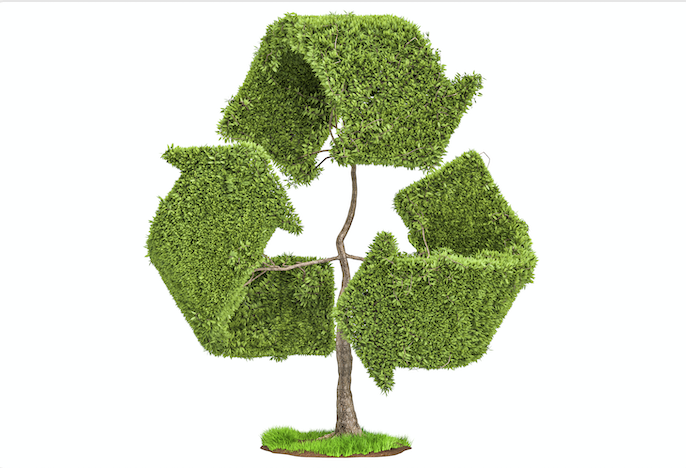
3 Toxic items in your home and how to dispose of them responsibly
Written by Sarah Siblini of @thegreenswitchuae
Spring is here and it is time to de-clutter that house!
Nothing feels quite as satisfying as getting rid of things to enjoy a space that is neat.
or bathe in that peace of mind that our seemingly harmless (yet quite toxic) items are disposed of safely.
You know, that liberating feeling that comes with knowing no animal was harmed in the process of dumping our belongings? No contamination of our waterways happened? Neither the soil that gives us food or the air we breathe? That feeling!
So what does sustainable and eco-responsible spring-cleaning look like exactly?
Spring cleaning in itself feels quite overwhelming, especially if you are not the minimalistic kind.
And if you identify as the hoarder type, and more specifically the tormented kind – the one that holds on to things that may have a potential use in the (sometimes very far) future – some of the tips below might help reduce that anxiety!
First, let’s look at how we can responsibly dispose of three hazardous items we all own at home:
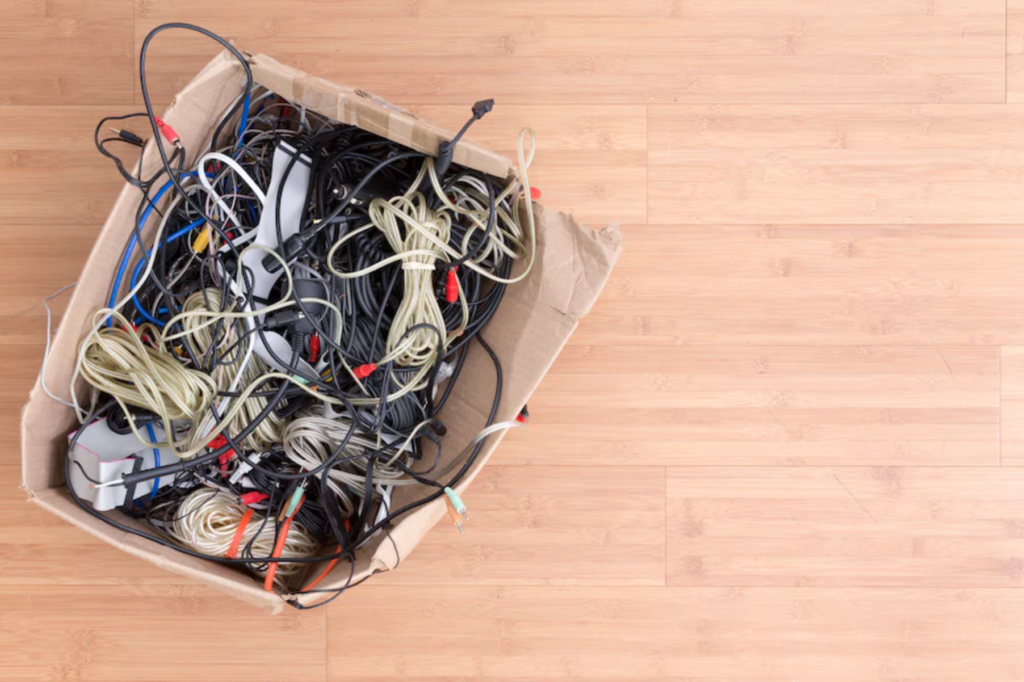
Electronics
Did you know that some of our tech contain shockingly dangerous toxic chemicals such as lead, mercury, cadmium, arsenic to name a few? These can impact birth outcome, thyroid dysfunction, behavioral changes and trigger other health issues. Beryllium oxide for instance can cause chronic lung disease!
So what can we do with all the tech we have laying around accumulating dust? Or if we want to upgrade our phone, gaming station, or laptop?
Apple will accept old devices for recycling, sometimes even offer a credit in exchange. All other items, such as wires, screens, tablets and other types of phones, can be dropped off at Spinneys, Virgin megastores, or Tadweer Recycling centers across town.
For a large amount of e-waste, corporations or residential communities can contact Enviroserve or Reloop for pick-up. Maybe you can start an e-Waste drop-off box in your compound?
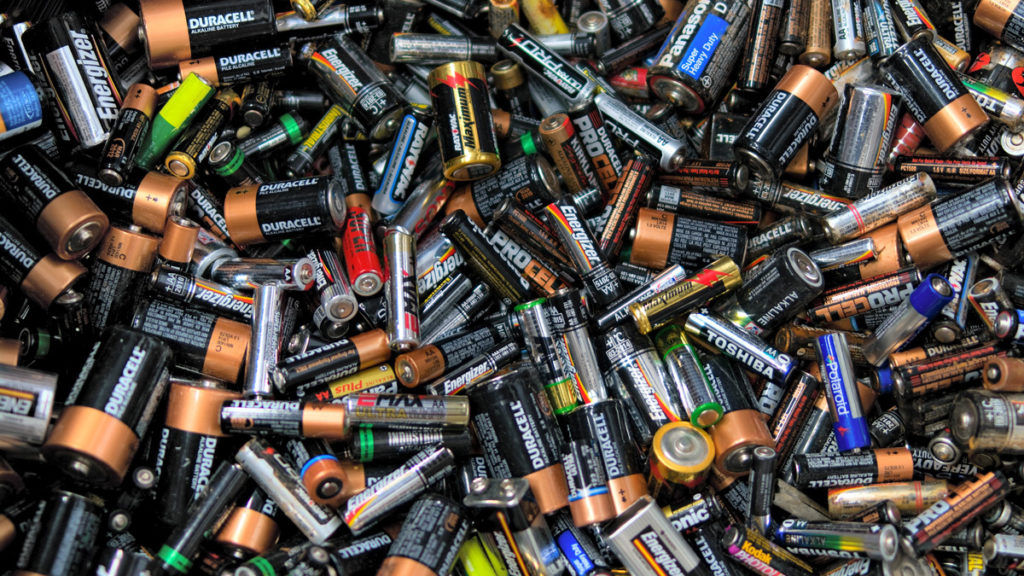
Batteries
Batteries contain heavy metals and toxic chemicals such as lithium, cadmium, sulfuric acid and lead. If disposed of in landfills, these toxic pollutants can leach into the soil and contaminate groundwater, damage fragile ecosystem, get ingested by animals, and eventually make their way back into our plate – think about what your grilled fish may be hiding in its insides!
Recycling AA batteries or button batteries isn’t a law yet here in the UAE but it is easier than you may think! First thing first, set aside a small box in your home where your used batteries can be amassed over the year before being disposed of in any Spinneys, Waitrose, Virgin Megastore or Tadweer Recycling center across town.
Like any other single-use item, investing in rechargeable batteries is a greener option. These eventually will also need to be disposed of in the appropriate bin at the end of their life.
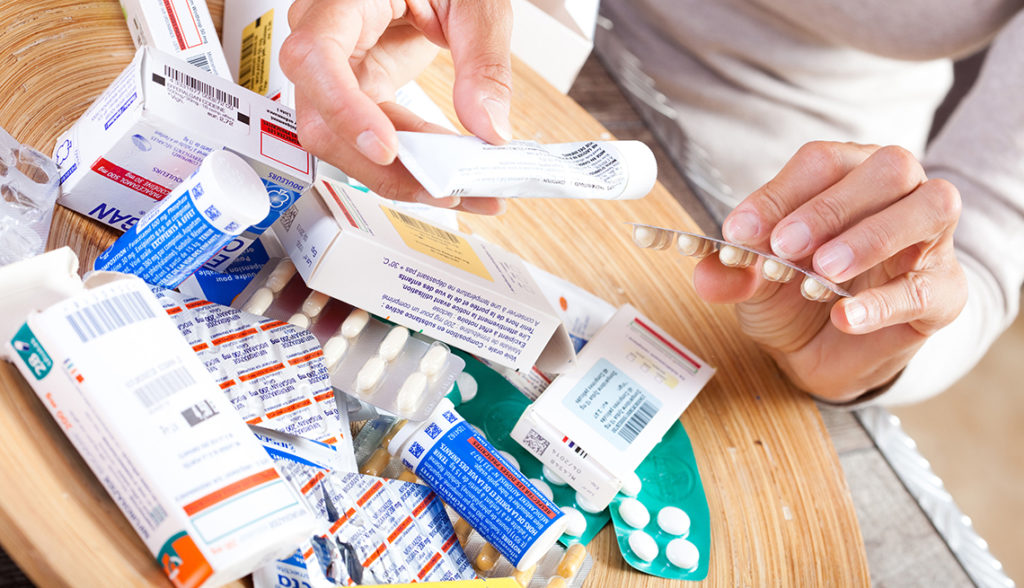
Medication
Expired or unused medications shouldn’t get flushed down the toilet as they foolishly use to advertise nor binned in the regular trash. We don’t want the active chemicals to get absorbed into the soil in landfills nor in our waterways. This pauses a health hazard not just to wildlife, but also communities who rely on drinking water. Wastewater treatment plants are not equipped to remove medications from the treated water, which is why we can find drug level residues in lakes and rivers around the world today.
Find a box at home (right next to the batteries!) where you can place expired or leftover meds and hand them over to the Red Crescent, DHA hospitals in Dubai or Tadweer Recycling centers across town. Cleveland AD has temporarily stopped taking in old medication and we hope they will very soon reinstate that service. Unused medications are donated while expired ones are typically incinerated so that they don’t disrupt fragile ecosystems.
For all other items that are no longer needed, here’s a breakdown to a second life:
SELL what you can on Dubizzle, Facebook groups or community WhatsApp’s.
RECYCLE if you are ready to, focus on glass and aluminum cans as they can be recycled infinitely. Check out the Recapp app, or drop off filled up bags at recycling stations across town.
UPCYCLE can the item be repurposed into a new purpose or look? For furniture, check out Think Upcycle.
DONATE to schools, nurseries charities, church, Hope-Amel, or the Freecycle Facebook page
How about the stuff you no longer need, can’t seem to sell, nor donate to anyone? Bin it? Never!
Turn to the Take My Junk team who can either recycle, refurbish then sell, or donate to charities themselves. Think Upcycle is another great one to dispose, sell, or buy furniture specifically.
And remember, everything that comes into your house will have to find a way out!
So if you don’t need it…Don’t buy it!
Yes even if it’s on sale, or the ultimate temptation…if it’s a freebie!


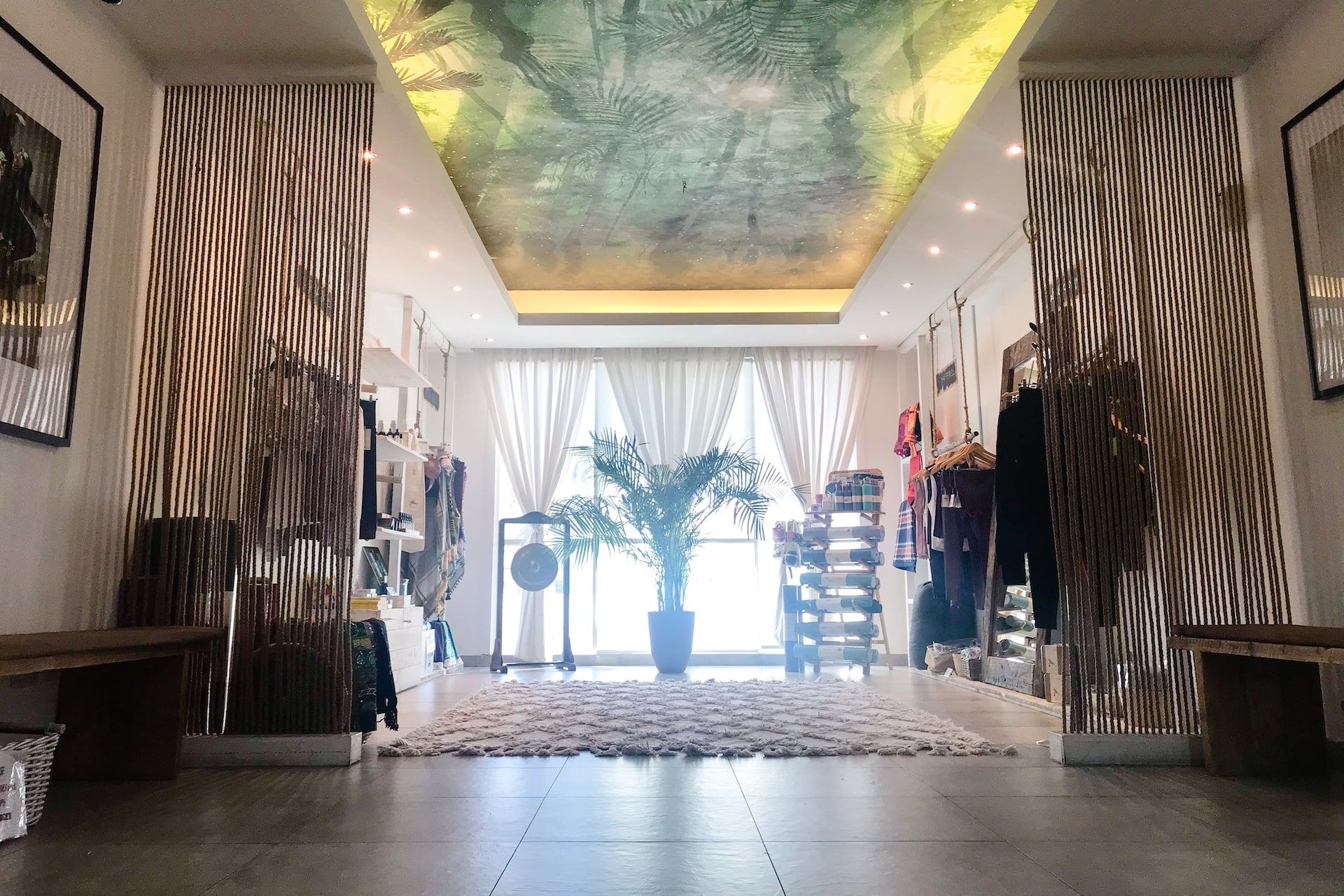

No Comments